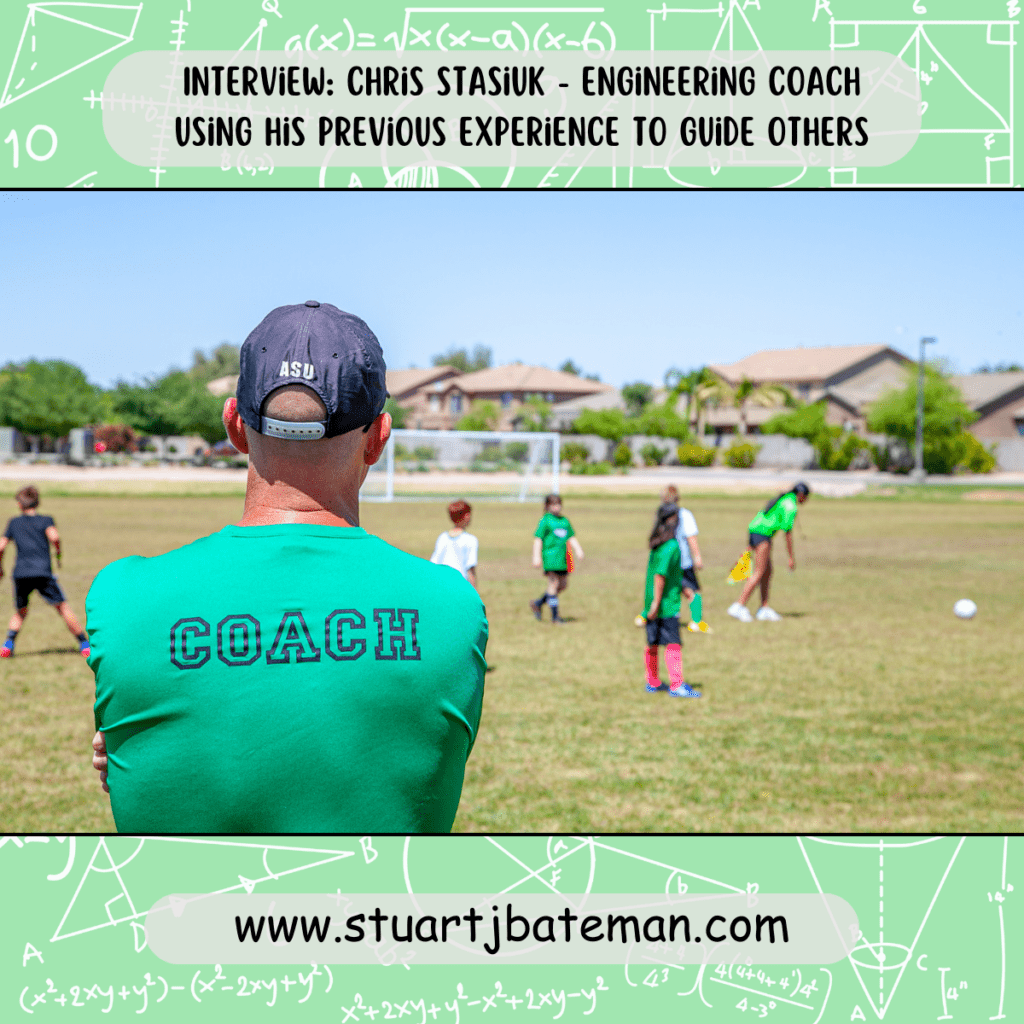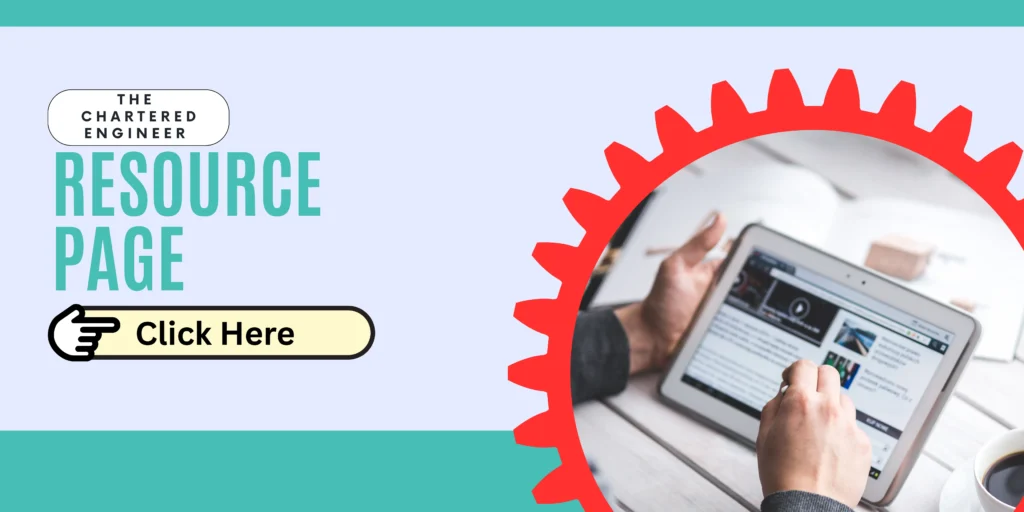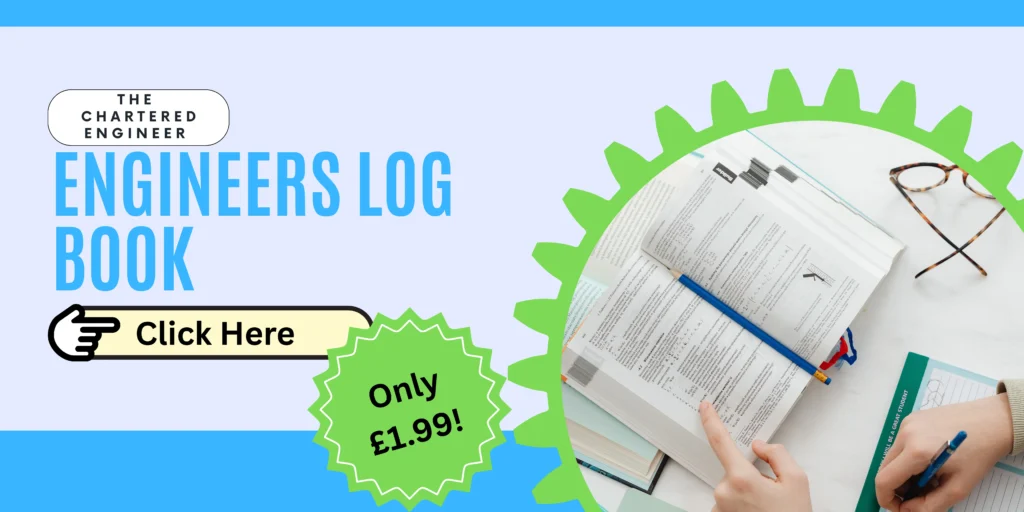Interview: Chris Stasiuk – Engineering Coach using his previous experience to guide others
Interview No.6!
Each person holds so much power within themselves that needs to be let out. Sometimes they just need a little nudge, a little direction, a little support, a little coaching, and the greatest things can happen. – Peter Carroll

With engineers today, the amount of options in terms of fields to study and work in is becoming wider and far deeper than ever before, engineers themselves can be pushed or driven by themselves to develop, but sometimes we get lost and become stuck in that journey. That’s where engineering coaches like todays interviewee Chris come into the picture.
Chris Stasiuk uses his immense experience from his own career journey to help other engineers find a path that they can develop on, mainly in leadership, communication and growth, or how Chris puts it on his LinkedIn page “breaking through career plateau’s”
Before we dive into the interview, here’s a link to Chris’s YouTube channel, for you to gain additional insights from him.
and now the main interview event…
Interview with a Engineering coach.
1, Can you briefly describe your career path and what led you to choose your specific field of engineering?
I started my career with a small engineering consulting firm right out of university, focusing on Y2K compliance (yes, that’s right – I was one of THOSE people). Sticking with that firm, I moved into controls and automation work, mainly in the power generation industry. I soon demonstrated management capabilities (projects and people) and great social skills, which pushed me into managing a business unit, multiple projects and conducting sales and business development. As I moved along, I also opened a branch office and built it up to eight people, serving food manufacturing and agri-food businesses. My business development role continued, and our small firm was acquired by a larger firm, which changed everything about the culture and the company. I left to start my own firm, but coaching ignited my passion for uncovering hidden and untapped potential, and I now focus on working with engineers who want to advance their careers by using a coach.
2, What key skills do you believe are essential for success in your engineering discipline, and how did you develop these skills?
Technical skills are table stakes and engineers graduate with these. What is often missing is humility – understanding and accepting what you don’t know opens growth opportunities. Once you have that, communication, leadership, and emotional intelligence are skills that truly advance your career. These skills must be actively sought out – typically through courses, training, or coaching – and then practiced relentlessly.
3, What are some common challenges you face in your industry, and how do you approach solving them?
In coaching engineers, one challenge is overcoming their ego-driven resistance to external help. Many engineers either don’t know about or are hesitant to embrace coaching, believing they can figure it all out on their own. I am working to shift this mindset through education, partnerships, and demonstrating the value of growth through coaching, helping them recognize the opportunities that await.
4, Can you share an example of a complex project you managed or contributed to, and what were the critical factors in its success?
I managed a small team supporting control system changes during a major expansion of a coal preparation facility. When the pandemic hit during a critical outage, it created chaos due to reduced staff and strict safety protocols. My team stepped up to fill in gaps caused by staffing and contracting issues. We proactively offered solutions to the client, and the project succeeded thanks, in part, to our adaptability, teamwork, and looking for ways to say “yes”.
5, How do you stay current with the latest developments and technologies in your field?
I stay informed through a combination of community involvement, a mastermind group, and self-study. This helps me keep up with trends and assess how they may impact coaching, consulting, and industrial automation.
6, Did you have a mentor early in your career? How did their guidance impact your professional development?
I had a couple of mentors early on, but the experiences were mixed. They provided valuable insights into the business side of engineering consulting but lacked strong technical guidance. This gap haunted me for a while, but ultimately, I thrived in building client relationships and business development, which became key strengths in my career.
7, What practical experiences or internships were most beneficial to you during your studies or early career?
I participated in a cooperative education program during university, alternating between academic and work terms. This gave me invaluable practical experience and allowed me to start building my professional network early, which became crucial later in my career. During my last work term, I was paired with an electrician who hated engineers. When I asked why, he explained that engineers design things on paper from their “ivory towers” that often don’t work in the real world, and they rarely listen to the people who actually have to make these designs work. This was a powerful lesson in staying grounded and collaborative, one that I still carry with me today.
8, How important are soft skills such as communication, teamwork, and leadership in your role, and how do you cultivate them?
Soft skills are essential. Without them, I wouldn’t have taken on the leadership roles I did, nor would I have started my coaching business. Some of these skills came naturally, but others—like leadership —I developed through coursework, mentoring, and consistent practice.
9, What advice would you give to young engineers or engineering students who are just starting their careers?
Stay humble, balanced, and open. Be intentional about your career goals and pursue opportunities that align with them. Make the most of each assignment for both your personal growth and your employer’s benefit. And start building your professional network early—it’s one of the most valuable assets you’ll have.
10, What emerging trends or technologies do you think will have the biggest impact on the engineering field in the next five to ten years?
AI, data science, and machine learning are set to revolutionize engineering. The insights and opportunities these technologies provide will push innovation to new heights, creating possibilities we could only dream of before.
Bonus question:
Are there any courses/books/videos/websites that you would recommend young engineers & students to look into when starting in your field?
I recommend Extreme Ownership by Jocko Willink and Leif Babin as a great guide to both life and leadership. Tiny Habits by BJ Fogg offers an evidence-backed approach to behavior change, and Be Useful by Arnold Schwarzenegger is a motivational reminder of how to be useful to others and create a meaningful life.
Thanks to Chris again for taking part in this interview, this has opened up another field of engineering that I’m not familiar with, that of consulting for engineering projects and being a coach for other engineers. I’ve spoken about this subject before about finding mentors to help you with your career.
Once again I find myself looking forward to reading the journey of our next engineer in their interview post to come! how about you?



What are your thoughts? Have I covered everything or is there more you know and would like to share?
I’m always learning and improving this site and my blogs, so please feel free to get in touch with me via LinkedIn or this site to discuss any topics I have covered.
If you’re having trouble finding ways to progress check out these sites filled with free learning tools:


Discover more from The Chartered Engineer
Subscribe to get the latest posts sent to your email.